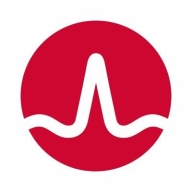

Bitnami Secure Images and Debian are products in secure cloud solutions. Bitnami has an upper hand due to its superior support and deployment simplicity.
Features: Bitnami Secure Images offer enhanced security, pre-configured solutions, and seamless integration across platforms. Debian provides a comprehensive software repository, customization flexibility, and strong community support.
Ease of Deployment and Customer Service: Bitnami Secure Images provide straightforward deployment and comprehensive customer service allowing quick setup. Debian's deployment can be more complex but offers extensive documentation and community resources.
Pricing and ROI: Bitnami Secure Images require a higher initial setup cost offset by enhanced security and support, offering strong ROI. Debian offers a lower setup cost focusing on long-term value with its open-source model.
| Product | Market Share (%) |
|---|---|
| Bitnami Secure Images | 7.2% |
| Chainguard Containers | 25.2% |
| Minimus | 25.2% |
| Other | 42.400000000000006% |
| Product | Market Share (%) |
|---|---|
| Debian | 5.8% |
| Rocky Linux | 11.1% |
| Ubuntu Linux | 9.0% |
| Other | 74.1% |

| Company Size | Count |
|---|---|
| Small Business | 6 |
| Midsize Enterprise | 3 |
| Large Enterprise | 4 |
Bitnami Secure Images offers a robust framework enabling enterprises to deliver a secured and optimized catalog of virtual machine images for various cloud platforms.
With Bitnami Secure Images, businesses can easily integrate security updates and operational efficiency into their cloud infrastructure. These images simplify the deployment process and reduce security vulnerabilities by ensuring all components are regularly updated. Users can trust the consistency and reliability of these images, thereby streamlining the management of cloud environments.
What are the key features?In industries like finance, deployment of Bitnami Secure Images ensures compliance with stringent security standards. Healthcare sectors benefit by maintaining protected environments crucial for sensitive data, while educational institutions appreciate the ease of managing scalable environments.
Debian is a reliable open-source operating system ideal for servers and desktops. With its wide array of packages and stable releases, it suits developers and organizations seeking dependable performance and security.
Debian stands out for its stability and extensive package repository, making it a go-to choice for developers. Its open-source nature ensures transparency and flexibility. Debian's package management system, APT, simplifies software installation and updates. Its security updates are regular and prompt, ensuring systems are protected. With support for multiple architectures, Debian caters to various environments from desktops to large-scale servers.
What are the key features of Debian?Debian is widely used in industries such as web hosting, scientific research, and education, where reliability and long-term support are priorities. Its flexibility allows it to be adapted for specialized applications in scientific computing or educational environments, ensuring it meets industry-specific technical requirements.
We monitor all Container Image Security reviews to prevent fraudulent reviews and keep review quality high. We do not post reviews by company employees or direct competitors. We validate each review for authenticity via cross-reference with LinkedIn, and personal follow-up with the reviewer when necessary.